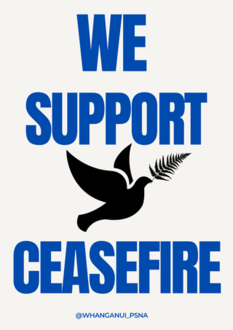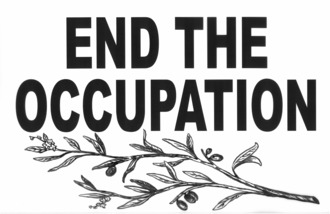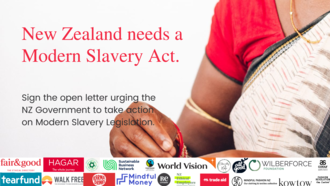-
Immediate and Permanent Ceasfire in GazaWe have a responsibility to the Palestinian and Israeli families living in this community who are impacted by these events. A community that upholds international law and human rights is a safer community for all. The observance of human rights and the condemnation of acts that breach those rights, namely acts of violence and terror against civilians, is an important pillar of our democracy, enshrined in the New Zealand Bill of Rights Act. Speaking up has moral and political weight. These events impact our community well-being of Whanganui, especially when we see on a daily-basis through the media, families and young children exposed to extreme acts of violence. Having leaders who call out these atrocities and call for action is important and impacts our collective well-being. Failure to call out acts of violence and terror against civilians is not a neutral position. International law is persuasive and relevant to your decision making. New Zealand is a member state and is bound by UN resolutions. There are numerous resolutions that have been passed, the most recent being UN Security Council Resolution 2728 adopted on the 25th of March 2024 calling for a ceasefire. There are a number of local bodies in Aotearoa/New Zealand and internationally who are calling for a ceasefire. The more voices that join this call the stronger it becomes. This council has a strong track record of standing up for human rights and condemning acts of violence against civilians. Most recently, in March 2022, the Whanganui District Council voted unanimously to support a motion to condemn the Russian government and stand by the people of Ukraine.70 of 100 SignaturesCreated by Ruby Haazen
-
Stop funding the genocide: change council policy to align with UN resolutionWe seek that both councils align their procurement policy with UN Resolution 2334, and the obligations placed on member states by that resolution. There is no question that Israel is currently in breach of many international laws. As a starting place, Israel is illegally occupying Palestinian territory. UN resolution 2334 refers to the territory held by Palestine in 1967 and the illegal occupation of that territory by Israel. As an occupier state, Israel has legal obligations to protect Palestinians who live in their territory. Israel in is breach of these obligations by directly targeting and knowingly harming Palestinian civilians. Israel does not have the right to attack citizens whom they have a duty to protect. International agreements are not directly enforceable on crown agencies where their provisions have not been incorporated in domestic legislation. However, international agreements are significant even when they are not incorporated into domestic legislation as there is considerable political and moral force on governments to act in accordance with their international obligations. UN Resolution 2334 In resolution 2334, Israel was requested to cease all settlement activities in the occupied territory. In support of this, Clause 5 of the resolution calls upon all states to distinguish between the territory of the state of Israel and the territories occupied since 1967 in all dealings with the region. The Resolution was supported by the New Zealand government. Subsequently, in February 2020 the United Nations published a database of over 100 companies it considered were doing business in the Israeli settlements. On 1 July 2023, the United Nations reviewed the list and removed 15 companies from the list due to them having halted activity in the Israeli settlements. United Nations Resolution 2334 declared that all member states should not deal with organisations doing business in the illegally occupied Palestinian Territories, this includes Aotearoa/New Zealand. We call on our local government to align its procurement policy with UN resolution 2334.25 of 100 SignaturesCreated by Ruby Haazen
-
Initiate a Royal Commission of Inquiry into ACC New ZealandThe Accident Compensation Corporation (ACC) was established in 1974 with the noble intention of providing comprehensive, no-fault personal injury coverage for all New Zealand residents. However, over time there has been a growing number of complaints about its lack of transparency, unfair practices, and denial of rightful claims. My father battled with ACC for 40 years. Like him, many others are forced to fight to be heard, for their injuries to be recognised and receive the support and funding they are legally entitled to. This is not an isolated incident but a systemic issue affecting countless New Zealanders who have been injured or disabled due to accidents. The current system is failing those it was designed to protect, leaving them in financial hardship and emotional distress. A Royal Commission of Inquiry into ACC would provide an independent review of the system's operations and policies. It would shed light on any malpractices or systemic issues within the organization that are causing unnecessary suffering for claimants. We call upon our government representatives - those who have the power to initiate this inquiry - to act now. Let's ensure that our fellow citizens receive fair treatment from ACC and that their struggles are not ignored any longer. Please sign this petition today; let us stand together for justice and fairness in our accident compensation system.11 of 100 SignaturesCreated by Hannah Sheath
-
Stand with early childhood teachers to save pay parityTeachers, parents, whānau and communities fought for two decades to win respect, recognition and pay parity for teachers in early childhood education. After finally achieving progress with pay parity, the National, ACT and NZ First coalition Government are initiating radical changes in early childhood education. They have signalled funding changes that threaten the pay of tens of thousands of teachers and risk children’s wellbeing by rolling back safety regulations. Removing protections to teacher pay and safety regulations are not new ideas. They are failed ideas that enable unscrupulous employers to cut corners. Ultimately, it is tamariki and staff who suffer when providers have a license to put profit before providing great care and education. We know that for tamariki to have the best start in life they need great foundations and the best possible beginning to their lifelong journey. Every child, no matter where they live or how much their parents earn, should have access to quality early childhood education, Māori medium, and Pacific language services that suit their needs and community, which place culture and identity at the heart. Kōhanga Reo, Puna Reo and early childhood teachers are trained and qualified to make sure our youngest children get the best teaching and learning – just like teachers in kindergartens and schools. Regardless of where our kaiako work, if they work to grow our tamariki and mokopuna they should have their mahi valued equally. Respect our youngest mokopuna in education, their kaiako, and their whānau. Don’t let Minister Seymour attack teacher conditions – the learning conditions for our mokopuna. Take us forwards, not backwards!6,956 of 7,000 SignaturesCreated by NZEI Te Riu Roa
-
Sanction Israel: Delay Means Palestinians PayDespite rulings from the UN General Assembly and the International Court of Justice, the state of Israel is continuing to kill Palestinians relentlessly in what are widely considered war crimes, including: - As of the 24th of March, 32,000+ Palestinians have been killed and 74,000+ injured. The majority of civilians killed (60%) are women and children[17]. - More journalists have been killed in this war than in other wars or events in the last 30 years. Before the Gaza war (Between 2001-22), at least 20 journalists were also killed by the IDF, with no one ever being charged or held accountable[18,19]. - More children have been killed in this war than in any global conflict in the last four years (between 2019 and 2022)[20]. - Gaza is experiencing the world's worst man-made hunger crisis[21]. As of March, the entire population in the Gaza Strip (2.23 million) is facing high levels of acute food insecurity[22]. Famine (the most extreme level of food deprivation) is imminent in central and northern Gaza. It is projected to increase between mid-March and May 2024, placing 70% (around 210,000 people) of the population at death's door. -As of the 21st of March, at least 56% of all buildings/structures in the Gaza Strip have been destroyed by the IDF. These include structures such as houses, housing units, schools and mosques[23]. Are these not sanction-worthy crimes? NZ also has legal obligations and must impose sanctions on the state of Israel for their flagrant violation of human rights, war crimes against the Palestinian people and for failing to comply with the ICJ rulings [24]. Legal obligations: International humanitarian law (IHL) -As of the 25th of March, The UN Security Council (for the first time) unanimously passed a resolution demanding an immediate ceasefire in Gaza during Ramadan[25]. The resolution is legally binding and requires immediate implementation by the international community to use all forms of leverage, like imposing sanctions and arms embargo on Israel, to make it comply with international law, e.g., ensure the protection of civilians[26]. Genocide Convention -All states parties to the Genocide Convention have a "common interest" in ensuring the prevention, suppression, and punishment of genocide. In their case, the ICJ also concluded that South Africa has a plausible case that Israel's acts could amount to genocide and that Palestinians are to be protected from genocide by Israel[27]. Hence, NZ has a legal obligation to do what it can to ensure that Israel complies with the court's orders. Good faith - NZ is legally obligated to act in good faith towards the ICJ ruling as it is a UN member. Stop waiting for an imaginary threshold to be reached to take action. Stop waiting for the genocide to become worse than it already is. Any help or sympathy at that point would be too little too late. We need immediate action from our leaders now! [1]https://www.icj- [2] https://euromedmonitor.org/en/article/6242 [3] https://www.legislation.govt.nz/act/public/2022/0006/latest/whole.html [4] https://www.oxfam.org.nz/news-media/israel-government-continues-to-block-aid-response/ [5] https://www.aljazeera.com/news/liveblog/2024/3/23/israels-war-on-gaza-live-netanyahu-brushes-off-blinken-over-rafah-attack?update=2793464 [6] https://twitter.com/UNLazzarini/status/1771917857598693549?ref_src=twsrc%5Etfw%7Ctwcamp%5Etweetembed%7Ctwterm%5E1771917857598693549%7Ctwgr%5E8a216506fe64bd17cd998bf5cebea06d6e1bb114%7Ctwcon%5Es1_&ref_url=https%3A%2F%2Fenglish.almayadeen.net%2Fnews%2Fpolitics%2Furnwa-chief-outraged-by-israeli-ban-of-food-convoys-to-north [7] https://www.unrwa.org/what-we-do/relief-and-social-services/unrwa-registered-population-dashboard [8]https://www.icc-cpi.int/sites/default/files/RS-Eng.pdf [9]https://twitter.com/antonioguterres/status/1771653572846870970?ref_src=twsrc%5Etfw%7Ctwcamp%5Etweetembed%7Ctwterm%5E1771653572846870970%7Ctwgr%5E066f539f2170a28f1c1f50144c44defb5930588d%7Ctwcon%5Es1_&ref_url=https%3A%2F%2Fwww.aljazeera.com%2Fnews%2Fliveblog%2F2024%2F3%2F24%2Fisraels-war-on-gaza-live-19-killed-as-israel-again-fires-on-aid-seekers [10]https://www.reuters.com/world/middle-east/aid-trucks-entering-gaza-must-double-meet-basic-needs-wfp-says-2024-03-06/ [11] https://edition.cnn.com/2024/03/01/middleeast/gaza-aid-israel-restrictions-investigation-intl-cmd/index.html [12]https://apnews.com/rafah-gaza-population-surge-photos [13]https://www.theguardian.com/world/2023/dec/07/idf-israel-gaza-refuge-zones-cruel-mirage-say-aid-agencies [14]https://peacenow.org.il/en/the-israeli-government-declares-8000-dunams-in-the-jordan-valley-as-state-lands [15] https://www.aljazeera.com/news/2024/3/7/israels-illegal-west-bank-settlement-plans-face-global-condemnation [16]https://www.amnesty.org/en/latest/campaigns/2019/01/chapter-3-israeli-settlements-and-international-law/ [17]https://healthcluster.who.int/countries-and-regions/occupied-palestinian-territory [18]https://www.npr.org/2023/12/03/1215798409/palestinian-journalists-killed-gaza-israel-hamas-war [19] https://cpj.org/reports/2023/05/deadly-pattern-20-journalists-died-by-israeli-military-fire-in-22-years-no-one-has-been-held-accountable/ [20] https://turkiye.un.org/en/263401-gaza-number-children-killed-higher-four-years-world-conflict [21] https://www.oxfam.org/en/press-releases/gaza-hunger-figures-worst-record-says-oxfam [22] https://www.ipcinfo.org/fileadmin/user_upload/ipcinfo/docs/IPC_Gaza_Strip_Acute_Food_Insecurity_Feb_July2024_Special_Brief.pdf [23] https://www.conflict-damage54 of 100 SignaturesCreated by Abdul Safi
-
Make food regulations fair and affordable for small businessesOur vision for a thriving food industry is one where there is an abundance of small, locally owned and operated food producers and mobile food/drink businesses offering a diverse range of choices at reasonable prices. This would support regular markets and community events that transform our public spaces into community spaces of music and cultural vibrancy; play, laughter, connection, and warm full bellies. One of the greatest barriers to running such businesses is the resourcing (cost, time and energy) required to comply with food safety regulations. Currently, the logistical, administrative and financial burden of registration and certification is the same for all domestic food businesses, regardless of size. A small coffee cart that only operates at a few summer events each year pays $500 - $1,000 annually in compliance costs, depending on region. While a large restaurant - such as a fast food outlet - pays the same amount even though it has exponentially higher revenue from being open all day on most (if not all) days every week and so can easily absorb these costs. High regulatory costs for small food businesses to operate impede their economic viability and their ability to remain competitive. Furthermore, due to loss and lack of government funding, MPI recently released a proposal to “maintain and expand” its regulatory services (https://www.mpi.govt.nz/dmsdocument/60877-Proposal-to-maintain-and-expand-New-Zealand-Food-Safetys-regulatory-services-under-the-Food-Act-2014-Food-Act). The proposal is 52 pages long and uses a lot of technical jargon. If it goes ahead, five existing services (including rules setting; oversight; and education) would be expanded and three entirely new services (nationwide interventions to raise performance; national monitoring programmes; and systems auditing) would be added. This would require at least 28 new staff and incur costs of $7.1 – $10.4 million per year (depending on the level of service selected), which would be “growing annually in line with inflation assumptions”. We believe the lack of funds is also the result of excessive and inefficient spending on services. An example of this could be the food safety videos produced as part of MPI’s Food Safety Toolkit; they are very professional but could have been created at significantly lower cost. The current proposal appears to allow more inefficient spending on services (such as business education and support, including new allocations for staff travel) that will not result in tangible outcomes for Aoteroa New Zealand’s food industry. In the absence of Crown funding, MPI wants to recover the cost of its proposed maintenance and expansion of services by introducing a new annual levy for all food businesses on the basis that they are the “most direct” beneficiaries of the services. However for small food businesses, such as mobile food vendors and coffee carts, the current regulations are already too cumbersome and costs beyond sustainable. Small businesses will never benefit enough to justify these additional costs, let alone the current costs of compliance. MPI divides food businesses into two categories: domestic food businesses and food importers. The former already pay two recurring compliance fees: registration with their territorial authority (local council) and a regulatory assessment (“verification”) of their premises to check compliance (charged at a rate of about $200 per hour) every 12-18 months. MPI now wants to recover the cost of maintaining and expanding the services of NZFS by introducing a new annual levy that all food businesses will have to pay because they are the “most direct” beneficiaries of the services. For all domestic food businesses - regardless of their size or annual income - the proposed new levy is $115 (plus GST) per year, per business. This fee only changes if a business has multiple sites, in which case it increases per site. This would be the third recurring fee food businesses have to pay to retain their registration to legally trade in food each year. It is also proposed that councils can charge an additional $11 (plus GST) fee for collection of the annual levy which means there would be four separate recurring compliance fees. As with the existing regulatory fees structure, charging the same levy for all businesses - regardless of size or revenue - means a mobile food vendor that only operates one morning a week will have to pay the same fee as a McDonalds restaurant that is open all day, every day of the year. For small food businesses, such as mobile food vendors and coffee carts, the current regulations are already too cumbersome and costs beyond sustainable. They will never benefit anywhere close to enough to justify these additional costs, let alone the current costs and requirements of compliance. Small food businesses have many unique benefits including: supporting local economy; allowing innovation; creating competition (which encourages lower food prices); supporting community and fundraising events (such as school fairs); and adaptability and flexibility. The Covid pandemic specifically highlighted the value of food markets and mobile food vendors, where the ability to shop outside was an important option to avoid spreading disease. Whilst food safety is important, it is also vital that regulations and fees are not so burdensome that the viability of small food businesses is undermined. Especially as inflation and high costs are already making it challenging for these businesses to stay afloat. The costs and requirements to comply with food safety regulations for small food businesses need to decrease significantly and more accurately reflect the revenue they generate so they can continue to support vibrant, connected and sustainable communities.585 of 2,000 SignaturesCreated by Ben Plows-Kolff
-
Stop the cuts - Protect Our School LunchesSchools are a place where kids go to learn, connect, and grow. But they can’t do this if they are hungry. In Aotearoa, one in five children live with food poverty. And poor nutrition is not limited to kids in food poverty, with only 5 per cent of children aged 0-14 years getting the recommended amount of fruit and vegetables per day. Nutritious food is essential for learning but many kids are missing out on this. This is why Ka Ora, Ka Ako - the school lunch programme was created. It currently offers 230,000 students in about 1,000 of the least advantaged schools lunches, and is a major safety net against food poverty and poor nutrition. If the Government chooses to remove the programme from schools it would rob students of their potential and then we all lose from the missed contribution they can make to our communities. Research from the PISA (Program for International Student Achievement) shows that students who miss meals due to lack of money are two to four years behind their peers who never miss meals in educational achievement(1). Prime Minister Christopher Luxon has said his Government is focused on enhancing school achievement. Cutting school lunches goes against this - and will instead reduce school achievement. Parents of children at schools with free lunches told researchers the lunches helped reduce their grocery bill, increased financial security and helped change their child’s food choices - towards healthier options(2). Principals at schools receiving Ka Ora, Ka Ako say the programme has made a huge and lasting impact on students and losing it would be a tragedy. Principal of Te Kura Māori o Ngā Tapuwae in Māngere East Arihia Stirling said on TVNZ’s Breakfast programme, children are more focused and the number of students having to work to help pay for family basics has fallen as a result of the free lunch programme(3). “What I say to the Associate Minister of Education is do not take the food out of our children’s mouths…this is so needed in the communities we serve.” Seletute “Tute” Mila, principal of Arakura School in Wainuiomata, Lower Hutt, told The Press, Ka Ora, Ka Ako was a “critical programme” which her students loved(4). The same story reported comments by Chisnallwood Intermediate year 8 student Ryder who said the lunches should stay “... mainly because that is a lot of students’ meal for the entirety of the day ... most people don’t have food at home.” Before the lunches were introduced in 2022, Ryder said he struggled to learn “because my brain just got like, ‘oh, I’m so hungry’.“After I ate the lunches I’d always have energy to do stuff.” All students at these schools receive a free healthy lunch which they share together. The provision of tasty, healthy lunches to all the students encourages them to eat nutritious food that will fuel their bodies and minds, and promotes social bonding through sharing a meal together. Students all over New Zealand should have healthy and free school lunches - which are essential to address food poverty and poor nutrition. This is why we are asking the government to keep the free school lunch program, if you agree please sign and share this petition. References (1) https://www.phcc.org.nz/briefing/food-poverty-nz-teens-creating-achievement-lag-four-years (2) https://academic.oup.com/heapro/article/38/4/daad093/7243592?login=false (3) https://www.1news.co.nz/2024/03/05/no-doubt-free-lunches-programme-has-helped-results-principal/ (4) https://www.thepress.co.nz/nz-news/350201994/most-people-dont-have-food-home-students-and-staff-fear-impact-lunch-cuts26,331 of 30,000 SignaturesCreated by Health Coalition Aotearoa
-
Open Letter to The NZ Government to Take Action On Modern Slavery LegislationThe decision to delay modern slavery legislation affects everyone, from the beginning of the supply chain to the end consumer. Urgent action is needed. In July 2023, the Labour government announced its plan to draft a modern slavery disclosure law, requiring companies earning more than $20 million a year in revenue to publicly disclose and address the risks of modern slavery within their supply chains. Detailed advice, including advocating for due diligence, was received from advocacy groups and experts in modern slavery legislation. Significant progress was made on drafting legislation, covering both business and public sector supply chains. But, despite repeated urging from the public, it was not introduced into Parliament before the last election. Now it is your turn. We are depending on your government to do the right thing, to introduce this legislation into Parliament and make it law. But we have since been told that your government has “yet to make a decision” on this proposal (3). Not only does this lag put New Zealand behind other OECD countries, but it affects businesses that are trying to do the right thing as they continue operating in a market where unfair competition can thrive due to unethical labour practices. New Zealanders want legislative action on modern slavery. An open letter from the business community was written in 2021 along with a 37,000-strong public petition. In 2023, more than 6,000 people demanded that the then government stop delaying progress. In February this year, ethical investors urged you to act. There is no need for any more hold-ups. We ask once again that your National-led coalition government make urgent progress on this issue. We pride ourselves on being a country that cares, a place where everyone gets a fair go. By stalling work on a modern slavery law, aren't we falling short of that ideal? Prime Minister Luxon, in 2022 you said, “Something I feel very passionate about is modern slavery… I’ve been really passionate about [it] for a long time. That’s something I think we could do a better job of and have modern slavery legislation, and make sure that we’re holding ourselves up to a standard.” (4). We are holding you to your own standards. Please Introduce a Modern Slavery Act into New Zealand Law Now! Yours sincerely, Fair&Good Ethical Directory With the support of: Hagar NZ, Tearfund, World Vision, Trade Aid, Fairtrade, Sustainable Business Network, Ethically Kate, Mindful Money, Walk Free, The Wilberforce Foundation, Mindful Fashion, Kowtow, 27 Seconds, All Good, AS Colour, Addington Café, Aho Creative, Bennetto, Borneo Bags, Burrow&Be, Caritas, The Centre for Research on Modern Slavery (UoA), Collective Canvas, Common Good Coffee, Common Sense Organics, Conscious Copy, Crave Café, Direct Impact Group, NZ Ethical Employers, Ethos&Co, Fairfield Trust, Fairplay, Fashion Revolution, Grow Good, Good Gold, Hamodava Coffee, HEED Consulting, Holi Boli, House of March, The Human Trafficking Research Coalition, IncaFe Organic Coffee, Joyya, Just Kai, Karma Drinks, Kind Café, Krama&Co, The Lucy Foundation, Made Good, The Modern Day Slavery and Labour Exploitation Advocacy Group, Morning Cider, Pickers Pocket, Phat Philly, Reca, Recreate Clothing, Regina Scheyvens, Professor of International Development, ReMade Agency, Sawubona, Seeds, Side Hustle, The Salvation Army, UnionAID, Yeastie Boys, Ziwi Baby References: (1) Walk Free Global Slavery Index 2023 https://www.walkfree.org/global-slavery-index/ (2) World Vision Risky Goods Supply Chain Risk Report 2023 https://wvnzintegrationprod.blob.core.windows.net/pdf/WVNZ%20Risky%20Goods%202023%20Report-Final.pdf (3) Newsroom 18/1/2024 https://newsroom.co.nz/2024/01/18/modern-slavery-law-plans-up-in-air/ (4) Video Interview with Guyon Espiner, 7 June 2022 https://www.rnz.co.nz/news/in-depth/468615/how-christopher-luxon-is-rebranding-the-national-party1,745 of 2,000 SignaturesCreated by fair&good

-
Protect Onoke Pā, WhangāreiOnoke Pā is a well known wāhi tapu to the hapū of Te Kamo and nationally significant to our shared histories. Hapū of Te Kamo have fought through the generations protection of Onoke Pā through Council processes and won in the Environment Court 1996 where it was recommended the land should be reserved as wāhi tapu, this did not occur. 2yrs ago we were advised that a developer Onoke Heights Limited sought to build 93 homes on Onoke Pā. Whangārei District Council Planners advised Council to decline the resource consent siting 'significant cultural impact'. Council elected to engage an Independent Commissioner to hear the case. Hapū of Te Kamo alongside concerned residents and members of the community gave evidence in the hearings late 2023. On Monday 19 Feb 2024 hapū were advised of the Commissioner's decision to approve the consent application to build 93 homes on Onoke Pā. We oppose this decision! And seek your support as we campaign to Protect Onoke Pā sacred site for the wellbeing of the people of Te Kamo and future generations. We now have a give a little page! Nau mai ki te tautoko https://givealittle.co.nz/cause/protect-onoke-pa-whangarei 01/03/2024 Te Hiku FM Haukainga Series https://tehiku.nz/te-hiku-tv/haukainga/44483/onoke-local-hapu-staunch-in-opposition-of-housing-development?fbclid=IwAR1ppA7Dca4UAkHZZmUXDAQRAjQ8x5kjS-NhobY46GwyZGNFwWk0xniDmmI 29/02/2024 Northern Advocate https://www.nzherald.co.nz/northern-advocate/news/future-of-onoke-heights-subdivison-in-whangarei-at-risk-developer-says/SO447AUFN5F3RPHATRO67KTOHA/ 28/02/2024 Te Ao News https://www.teaonews.co.nz/2024/02/26/whangarei-iwi-livid-at-decision-to-build-homes-on-wahi-tapu/1,058 of 2,000 SignaturesCreated by Ngā Mahinga o Ngāti Kahu o Torongare

-
Protect Te Aka Whai OraOur health system has failed Māori for far too long. Report after report has demonstrated institutional racism and exclusion of Māori leadership that has led to devastating outcomes and inequity. For all those years, hapū, iwi, health workers, lawyers, health researchers, and many more have fought for better, and called for practical solutions they knew would work. Te Aka Whai Ora (the Māori Health Authority) is the result of their vision for a health system that better honours Te Tiriti o Waitangi, and better cares for whānau. A truly Māori-led agency that has the power to resource and lift up kaupapa Māori, and iwi and hapū health services, can improve health for Māori, and all communities in Aotearoa. Without a clear plan to improve hauora Māori, the National, ACT, and NZ First parties have vowed to disestablish Te Aka Whai Ora. The coalition Government plan to introduce the disestablishment legislation just days before the hearing of the Urgent Waitangi Tribunal claim is set to begin. This bad-faith move restricts the jurisdiction of the Tribunal to fully consider this breach of Te Tiriti, and the impact on Māori. It is unacceptable for the Crown to unilaterally move ahead and block tangata whenua from being heard. We demand a health system that treats everyone fairly, in ways that uplift them and their whānau, and honours Te Tiriti o Waitangi. We stand with people on the frontline of the health system: allied, public, and mental health practitioners, nurses, doctors, and many more health professionals, who know Te Aka Whai Ora is important and necessary to deliver healthcare well. Disestablishment is a major threat to Māori health. That’s why we’re calling for the Government to change course now and protect Te Aka Whai Ora. https://www.youtube.com/watch?v=ZUTDpxDh90E17,783 of 20,000 SignaturesCreated by Stop Institutional Racism NZ

-
TOITŪ TE TIRITI!!In 1835, 189 years ago, a gathering of great chiefs of Aotearoa signed He Whakaputanga with representatives of the British Crown. Five years from that date, Te Tiriti o Waitangi was signed between Māori and the Crown. This momentous decree came as a great beacon of light and hope for both parties that allowed the establishment of a government that acknowledged Māori chiefs having rangatiratanga over their lands and ensured all peoples in this country would be treated the same. 184 years after the signing of Te Tiriti o Waitangi, Julian Wilcox reminded us of the vision of Mohi Tāwhai, which told of a time when the mana of Te Tiriti would be trampled on and requested his signature be removed from Te Tiriti. When Governor Hobson said no, and Mohi Tāwhai replied ‘Governor, may your words float like balsa wood in the net, and my words sink to the bottom of the sea like stone’. 184 years later, Governor Hobson’s words have sunk to the bottom of the sea like stone. It is obvious today that the current Government has an agenda to diminish the unique place of Māori in relation to the Treaty, by trampling on its mana. The introduction of the Treaty Principles Bill is a transgression against Te Tiriti o Waitangi. Now is the time to make real the promises of democracy, the promises afforded in Te Tiriti. Today I call all young people and their whānau to action. I ask that we ready ourselves to oppose in all constructive forms the introduction of the Treaty Principles Bill. In saying this, it is not just out job alone to stop what is currently being passed through, we must also ensure the introduction of another Bill that entrenches the text of He Whakaputanga and Te Tiriti as the constitution of Aotearoa. The proposed Treaty Principles Bill states: - That the government has the right to govern all New Zealanders - That the government will honour all New Zealanders in the chieftainship in their land and all their property - That all New Zealanders are equal under the law with the same rights and duties The urgency of this petition cannot be overstated. For Māori, this bill represents a direct assault on our rights, our culture, and our identity. It threatens to perpetuate the injustices of the past, widening the gap of inequality that still persists in our society today, and taking this into our future. But this fight is not ours alone; it is a collective struggle for justice, equality, and dignity that I hope resonates with every soul who calls this whenua home. We need you to prepare your submissions opposing the bill, inaction means complacency. If we do not oppose it now, in great numbers, it sends a message to the Government that we support this bill and in effect, support the continued trampling and transgressions against Te Tiriti. Historically, we have not used the submission process system to amplify our voices, and legislation continues to remain unchallenged. The time to amplify our voice is now. Kāti, hai whakatepe ake te kōrero, me pēhea e kore ai e mutu ki te reo Māori. Nui rawa ngā kōrero mo Te Tiriti o Waitangi, kai te mārama kē koutou ki te horopaki o taku hōhā ki te whakaparahakotanga o Te Tiriti o Waitangi. Mārama kehokeho ana mātou te Iwi Māori ki ngā atikara o te Tiriti, ko taku kia koutou te Kāwana, whai tonu i te māramatanga i te pōuri, mā reira pea ka hoki tātou ki te ia o Te Tiriti, he mahi tahi mo te oranga o te katoa, kaua ko te raupatu, kaua ko te whakamate reo, kaua ko te kaikiri ki tōku Iwi Māori. Ka mutu ki ngā kupu a te Haka o Ngāti Whakaue “Hoariri Karauna - Ka riri au.”1,685 of 2,000 SignaturesCreated by Maringi James

-
Grow the workforce: paid training in healthcare, education, and social work professionsWe are short 700 social workers, 940 psychologists, 1000 teachers, 1,050 midwives, 1,700 doctors, & 4,800 nurses to name a few. Our hospitals, GP practices, schools, mental health & social services are more stretched than ever. Dangerously low staffing levels & overworked professionals make for burnt-out workforces & inaccessible services. This means long waitlists for surgeries or specialist appointments & long wait times in ED. Delayed access to mental health assessments, treatment, crisis support, & suicide prevention. Family harm & child protection services stretched beyond capacity. Large class sizes in schools mean reduced capacity for individual learning needs to be met & homeschooling for parents when teachers are off sick. The ripple effect of workforce shortages is massive. More staff are needed but it’s nearly impossible to complete course requirements with the current cost of living. Students are burning out & dropping out of study at rates of up to 45%. They can’t afford to work for free when rent, food, & power still cost money. - Students training in professions with placement requirements complete between 500 & 2400 hours of unpaid training depending on registration requirements. Medical students complete 20-42 weeks of unpaid placements for 3 years (after a 3yr BSc Health Science). - Students are often required to live or work away from home to complete placements. The cost of double rent & the impact on part-time work opportunities are significant. For students with on-call requirements, maintaining paid work is almost impossible. - Students must cover course related costs such as textbooks, uniforms, immunisations, equipment, travel, parking, supervision, & childcare arrangements. $1000 course costs loans are insufficient to cover these expenses. - Students participate in paid work to pay their bills on top of unpaid placements, often working up to 80 hours a week to make ends meet. Students from backgrounds of hardship or those caring for tamariki/whānau get excluded from these professions as they have limited financial flexibility or capacity to take on high student loans, unpaid labour & course related costs. - Student hardship disproportionately affects Māori & Pasifika because of existing inequities in Aotearoa New Zealand. We need greater diversity & experience to better serve the needs of our communities but without financial support to study our professions are at risk of becoming more short-staffed & less diverse. Post-graduate students Support must also be available for post-graduate students undertaking placements as part of their registration requirements. Currently, postgraduate students are ineligible for student allowance. - Many degrees are completed at a post-graduate level via an applied/professional masters. - Registered psychology professions & psychotherapy are only available at postgraduate level. - Lifetime student allowance limits are significantly lower for those over 40 years of age. - Mature students’ only option is to take on huge student loans & living costs. Working for free while collecting debt is especially prohibitive for students with additional domestic, family, and financial responsibilities. We must incentivise New Zealanders to gain qualifications in registered professions. Tradies receive support through packages like the Apprenticeship Boost and Police are paid to train while provided bed and board. Paid training for our health, education, and social work professionals must become the norm too. The solution! Provide students with a universal, non-repayable, annually increasing stipend. We are calling on the government to pay students a universal stipend while they train in registered professions with compulsory placement requirements. This is non-repayable & should increase annually to reflect the year-on-year increase in placement hours, skill development, & responsibilities. First year undergraduate programs with placement requirements must start on at least equivalent to the training wage for Aotearoa New Zealand. Postgraduate students should start on at least equivalent to the living wage to reflect their existing qualifications & professional experience. What is a stipend? A stipend is not a wage. It is a tax-free fund to support students to cover living costs, enabling them to fully engage with their studies & placement requirements. A stipend does not make students employees. It will not affect training, practice, or supervision requirements. Year 1: Training wage (tax-free stipend) $32,084.64* Year 2: Minimum wage (tax-free stipend) $39,312.72* Year 3+: Living wage (tax-free stipend) $44,008.58* *Take home amount students would receive at the current rates. These should be reviewed & adjusted annually in line with equivalent wage rates. Additional allowances should be available for on-call requirements, mandatory therapy, & supervision costs. Please sign & share this petition for paid training in healthcare, education, & social work. Funded workforce development will improve accessibility to training, increase the diversity of staff, & enable better access to quality services for whānau & community. Follow Paid Placements Aotearoa’s advocacy on: Facebook https://www.facebook.com/PaidPlacementsAotearoa Instagram https://www.instagram.com/paid.placements.aotearoa/ LinkedIn https://www.linkedin.com/authwall?trk=bf&trkInfo=AQGfBgJOR0gsnwAAAY0K0NJQ4VSzObpB_5YpuuKfAs4gSu9gxg1BfhglPpZqhKz9ODj2xKAUWfio4DrWWjGr5yXqlQNvywhjI4U3p6L5VKxhaSXw35UEoahOPDPewg04X9Xqqrw=&original_referer=&sessionRedirect=https%3A%2F%2Fwww.linkedin.com%2Fin%2Fpaid-placements-aotearoa-nz-236384272%2F8,510 of 9,000 SignaturesCreated by Bex Howells












.png)